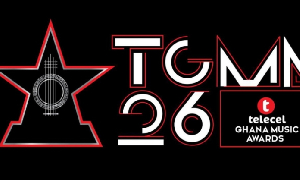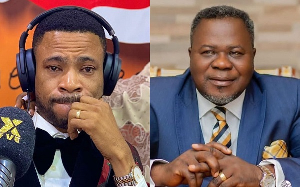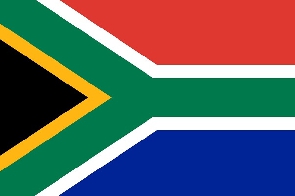When the President, His Excellency Nana Addo Dankwa Akufo-Addo, was sworn into office on 7th January 2017 as President of the Republic of Ghana for his first term, his inaugural address included, inter alia, an invitation to all Ghanaians to be CITIZENS and not spectators.
This is what he had to say, “I ask you to be citizens: citizens, not spectators; citizens, not subjects; responsible citizens building your communities and our nation. Let us work until the work is done. Holy Scripture in Galatians 6:9 says “Let us not become weary in doing good, for at the proper time we shall reap a harvest if we do not give up”.
Most people reasonably understood him to mean that rather than sitting on the fence and watching the Ghana project unfold, one must actively participate in the project as a citizen. Having been born to two Ghanaian parents in Ghana, the Author believes he qualifies as a citizen and by virtue of that qualification has earned the right as a citizen to reflect on the above subject matter.
Introduction
‘Article 71’ Office Holders under the 4th Republican Constitution of Ghana have been a subject of discussion in Ghana for several reasons. There are some who perceive that Article 71 Office Holders earn too much from the State.
Others even think that the ‘end-of-term’ benefits that these officers receive after every 4 years is excessive, without any justification (having regard to what other public sector or civil servants receive) and a rape of the limited national resources.
It has been publicly reported that Public Officials and other Article 71 Office Holders of successive governments under the 4th Republic have, after their term of office, received huge sums of money as ex-gratia after their 4-year term, regardless of them being Ministers or Members of Parliament who have either lost their seats or have been re-elected. For the avoidance of doubt, the Author uses ‘huge’ relative to what other public or civil servants also receive. This is the case whether the Nation is in good or in hard economic times.
The burden of the Author in this paper, will be to discuss the issue of remuneration or entitlements of Article 71 Office Holders and question the reasons for their special treatment under the Constitution (1992).
The Author will also examine the legal principle of nemo dat quo non habet and question, whether or not, there is a justification for same under the Nation’s current hard economic conditions, or better still, whether a country with an ailing economy such as Ghana’s should still pay its public officers ex gratia after these public officers have served the State for 4 years.
In doing so, the Author proposes to review the various Office Holders mentioned in Article 71, the legal principle of nemo dat quo non habet, the issue of ex gratia, the current economic challenges facing Ghana (whether due to Russia-Ukraine war or Covid 19 or not) and to conclude that under the current circumstances, it may be prudent for the State to reconsider and depart from the practice of paying ex gratia, at least until the economy is back on track.
Article 71 Office Holders, who are they?
The Constitution of the Republic of Ghana (1992) creates a certain class of public officers in Article 70 and provides for their terms and conditions of office in Article 71. Due to the huge benefits and entitlements they get, it seems to the Author that the public has lost sight of the fact that they are Article 70 Office Holders and Article 71 only provides for their terms and conditions of office.
Article 70(1) of the Constitution (1992) provides that “The President shall, acting in consultation with the Council of State, appoint (a) the Commissioner for Human Rights and Administrative Justice and his Deputies, (b) the Auditor-General; (c) the District Assemblies Common Fund Administrator; (d) the Chairmen and other members of (i) the Public Services Commission; (ii) the Lands Commission; (iii) the governing bodies of public corporations; (iv) a National Council for Higher Education howsoever described; and (e) the holders of such other offices as may be prescribed by this Constitution or by any other law not inconsistent with this Constitution.”
Clause 2 of Article 70 provides that, “The President shall, acting on the advice of the Council of State, appoint the Chairmen, Deputy Chairmen, and other members of the Electoral Commission.” Thus, these persons, in addition to some others not expressly mentioned in Article 70, are the category of persons referred to as ‘Article 71’ Office Holders appointed by the President.
As is the law and practice in Employment law, every appointment or employment comes with its terms and conditions and these Public Office Holders referenced above are no exception.
The common practice is that the terms and conditions of employment of employees are known before the commencement of the employment relationship. In the case of employment beyond six months, the law is that the contract must be in writing setting out their rights and obligations thereunder.
It seems however that for Article 71 office holders, their terms and conditions (regarding remuneration and financial benefits) are determined after they have served their terms and the differences of the remuneration determined after they have served are paid to them as part of the ex gratia package, a position the Author suggests must be reconsidered and departed from.
Article 71 provides for the terms and conditions of these public offices. Clause 1 of Article 71 provides that “The salaries and allowances payable, and the facilities and privileges available, to (a) the Speaker and Deputy Speakers and members of Parliament; (b) the Chief Justice and other Justices of the Superior Court of Judicature; (c) Auditor-General, the Chairmen and Deputy Chairmen of the Electoral Commission, the Commissioner for Human Rights and Administrative Justice and his Deputies and the District Assembly Common Fund Administrator; (d) the Chairmen, Vice Chairmen and other members of (i) a National Council for Higher Education howsoever described; (ii) the Public Services Commission; (iii) the National Media Commission; (iv) the Lands Commission; and (v) the National Commission for Civic Education; being expenditure charged on the Consolidated Fund, shall be determined by the President on the recommendation of a committee of not more than five persons appointed by the President, acting in accordance with the advice of the Council of State.”
Clause 2 of Article 71 provides thus, “The salaries and allowances payable, and the facilities available, to the President, the Vice President, the chairman and the other members of the Council of State, Ministers of State and Deputy Ministers, being expenditure charged on the Consolidated Fund, shall be determined by the Parliament on the recommendations of the committee referred to in clause (1) of this article”.
Article 71(3) construes salaries to include retirement benefits and awards thus, “For the purposes of this article and except as otherwise provided in this Constitution, “salaries” includes allowances, facilities and privileges and retiring benefits or awards”.
Ex Gratia
Ex Gratia has its etymology from a Latin word from ‘ex’ meaning ‘from’ and ‘gratia’ meaning ‘grace’ or ‘favour’. Therefore, it can mean something done “by favour” as opposed to something done based on merit or an entitlement.
It is a payment given as a favour or from a sense of moral obligation rather than because of any legal requirement. According to the Investopedia, Ex Gratia payment is considered voluntary because the party making the payment is not obligated to compensate the individual”. Ex gratia payments are therefore gratuitous and not paid as a compulsion or legal requirement.
It is not a legal obligation on the State, neither is it a right conferred on such public officers. There is no express mention under the 1992 Constitution of Ghana for the payment of Ex Gratia. The practice has been for the State to pay certain public office holders after the 4-year term of an executive presidency. The amount payable as ‘ex gratia’ is charged to the Consolidated Fund under the Constitution implying an expense to the State or the tax payer.
After every 4 years, being the end of the term of the Executive President, huge sums of money are paid to certain public officials as their back pay and retirement benefits or ex gratia pursuant to Article 71. Apart from the payment of such monies generating various discussions and considerable amount of controversy, there has been increasing advocacy in recent times to reconsider the payment and possibly abolish the practice, which has been seen as a few public officers milking the State after serving for just 4 years.
This has gotten the attention of no less a person than the former President His Excellency John Dramani Mahama, wading into the subject and promising, among other things, to scrap the payment of ex gratia when given an opportunity to serve as President again.
To reiterate, the 1992 Constitution does not expressly mention, per se, the payment of ex gratia to political or public office holders after every 4 years. Article 71 of the 1992 Constitution only provides that, the terms and conditions of such officers shall be determined based on the recommendation of a committee that is set up by the President and determined by the Executive or the Legislature as the case may be. However, the law under Article 71(3) as stated above construes “salaries” to include allowances, facilities and privileges, and retiring benefits or awards. Ex gratia can therefore be seen as a retirement benefit and therefore may fall within this definition.
Establishment of presidential committee on emoluments and determination of Emoluments of Article 71 Office Holders
The 1992 Constitution requires that such committees are established for the determination of the emoluments of the relevant public offices under the law. The Committee is supposed to be made up of not more than five persons and the appointing authority is the President on the advice of the Council of State; an advice which may not be binding on the President .
Upon the presentation of the report of the Committee, the Executive approves the recommendation of the emoluments of the Members of Parliament and other officers in Article 71(1) and the Legislature also does same for the President, Vice President, Chairman and Members of the Council of State, Ministers of State and Deputy Ministers. This arrangement has led to other commentators labeling it as ‘You Scratch my Back and I Scratch your Back’.
There has been the practice of the establishment of the Emoluments Committees that are set up pursuant to the 1992 Constitution and recommendations are made for the remuneration of these relevant Officers. Under the 1992 Constitution, several of such committees have been established by various Presidents. There has been the Greenstreet Committee, 1993 (for 1993-1997), Greenstreet Committee 1998 (for 1997 - 2000), The Chinery-Hesse Committee, 2005 (for 2001 - 2005), Chinery-Hesse Committee 2008 (for 2005-2008), The Ewurama Addy Committee, 2011 (for 2009-2013) as well as the Edu-Buando Committee 2016 (2013-2017). The most recent one set up in 2019 was the Professor Yaa Ntiamoah Baidu Committee which was constituted by H.E. President Akufo-Addo on June 18, 2019 with a two-fold terms of reference as follows: “(1) to make recommendations in respect of emoluments and other privileges for Article 71 Office Holders, as specified under the Constitution; and (2) to examine any other relevant matter which the Committee deems appropriate to its work”. It is worthy of note that, the President in his remarks at the inauguration, indicated that although he is bound by the Constitution to establish such a committee, “I think it may be worth our while to examine the practice of other jurisdictions, for example the American one, where the principles are established and automatically adjusted according to certain objective criteria. This may well be an issue for further constitutional debate and decision.”
The Committee held stakeholder consultations and considered several factors in arriving at the amounts payable to the public offices holders under consideration. The work of the Committee from the report was guided by ten principles which were “(i) Equity and Fairness, (ii) Vested and Acquired rights, (iii) Dignity of the position, (iv) Ability to pay, (v) Context, (vi) Reasonableness, (vii) Risk associated with the Office, (viii) Responsibilities and requirements of the Office, (ix) Security of tenure and (x) Motivation and attractiveness to enable the recruitment of persons of high calibre.” It is interesting to note that the guidelines included the ability to pay as well as reasonableness. The Author suggests that having regard to where the country finds itself economically, the ability to pay such ex gratia may be challenged. It will also not be reasonable to pay such huge sums to Article 71 Office Holders, when in addition to the above, people who have made genuine investments have had to suffer by way of haircuts, the effects of Debt Exchange, as well as the general economic hardships and the call on Ghanaians to sacrifice. In paragraph 1.4.6 of the Report on page 6, this is what the Committee said on Reasonableness “The Committee is of the view that emoluments of Article 71 Office Holders must be seen to be fair; both in the eyes of the Office Holders and the taxpayers. At the end of the day the taxpayers must be satisfied that their taxes are being used efficiently. The Committee also took note of the past public perception and sentiments on salaries and privileges of Article 71 Office Holders.”
A review of the 113 paged Professor Yaa Ntiamoah Baidu Committee Report shows that, the State upon recommendation of the Committee paid a grand total of over Two Hundred and Seven Million, Eight Hundred and Forty-Five Thousand, Five Hundred and Twelve Ghana Cedis (GHS207,845,512.00) as ex gratia to Article 71 Office Holders who served the State between the year 2016 and 2020. This included ex gratia payment to the Executive Arm of Government which ranged between GHS366,340.00 and GHS659,392 being the highest, the Legislative Arm of Government ranging between GHS396,872.00 and the highest being GHS488,456.00, the Judicial Arm of Government ranging between GHS278,380.00 and the highest being GHS427,612.00, and payment to Independent Constitutional Bodies which also ranged between GHS260,956 to GHS407,456.00. It must be noted that these amounts or the grand total of GHS207,845,512.00 excludes payment to Presidential Staffers, Staff of the Metropolitan Municipal and District Assemblies.
The Professor Yaa Ntiamoah Baidu Committee also found that President J. A. Kuffour, during his term of office, introduced the extension of courtesies, including the payment of monthly allowances, to spouses of former Heads of State and spouses of sitting Presidents and Vice Presidents. It is actually trite as found by the committees that neither Article 71 nor any other provision in the Constitution bestows benefits on spouses of Presidents and Vice Presidents. Similarly, no law mentions what the State should provide for spouses of Presidents and Vice Presidents. According to the Report, During the Committee’s consultations a recurring issue with respect to spouses of former Presidents was the rumour that some former First Ladies struggle to survive in foreign lands. The likelihood of spouses of former Presidents to struggle especially after their spouses have died is not lost on the Author, although such situations should be rare. The Professor Yaa Ntiamoah Baidu Committee Report in its recommendation said:
“The administration of President Kuffour introduced the extension of courtesies, including the payment of monthly allowances, to spouses of former Heads of State/Presidents/Vice Presidents. Subsequent administrations have continued the gesture and even extended them to incumbent First and Second Ladies. The gesture remains purely humanitarian, to support, and in some cases, rehabilitate former First Ladies who were evidently struggling to subsist. However, there is no legal basis for this support. Thus, the Committee recommends that the support extended to spouses of Presidents/former Presidents/Vice Presidents/former Vice Presidents be regularized and included in the privileges of Presidents/former Presidents/Vice Presidents/former Vice Presidents.”
While the Author believes that some form of financial assistance may be necessary for the spouses of former Presidents who have transited to the other world or passed on, there is no justification for extending such financial assistance to the spouses of current Presidents and former Heads of States or Presidents who are still alive and retired on their untaxed salaries and emoluments. It was not surprising that there was a huge public outcry when the 1st and 2nd Ladies H.E. Rebecca Akufo-Addo and H.E. Samira Bawumia were announced to have received some form of ex gratia from the State. The 1st Lady had to reject and return the amount she received from the State after the agitations, a move which was commended , albeit in the Author’s view, such payments were unwarranted and should not have been made in the first place. It is uncertain whether the 2nd Lady also returned the amount she received as ex-gratia from the State.
Constitutional Article 71 Office Holders and other ‘Backdoor Article 71’ Office Holders
There is the growing practice of expansion through legislation, the list of beneficiaries under Articles 70 and 71 of the Constitution. The addition to the list in the Constitution by statutes also has the potential effect of significantly increasing the ex-gratia that is payable under Article 71 of the 1992 Constitution and by extension the burden on the Consolidated Fund. Article 71 is part of the entrenched provisions of the Constitution and it is trite that same cannot be amended by an ordinary statute. The amendment of an entrenched provision goes through an elaborate process including reference of the proposed amendment by the Speaker of Parliament before consideration by Parliament to the Council of State for advice, which advice shall be rendered within 30 days after receipt. The bill is then published in the Gazette but shall be introduced to Parliament only after six months. From this stage, it is subjected to a referendum and the votes must return with a certain threshold before the amendment will be deemed passed . Thereafter, it shall be assented to by the President. Even though this is the proper way to amend the entrenched provisions, it has been observed that some legislations have been passed to indirectly amend and add to the list of beneficiaries under Article 71.
The Presidential Office Act is one such legislation that has sought to add on to the list. The purpose of the Act, as seen from the law itself, is to “establish the Presidential Office to provide for staff for the President and Vice-President and to provide for their functions and related matters”. The relevant provisions are Sections 4 and 6. Section 4 provides for the appointments for the Office thus “(1) The President shall, acting in consultation with the Council of State, appoint the persons the President considers necessary to hold office as presidential staff in the Office. (2) The number of persons that may be appointed under subsection (1) and the grade of the officers shall be determined by the President.” More instructive is Section 6 on conditions which provides that “Presidential staff are entitled to the salaries, allowances, facilities and privileges that are determined under Article 71 of the Constitution.” It is the Author’s view that this provision is an indirect amendment of the Constitution without following the due constitutional process for so amending. Aside from the fact that same is unconstitutional, it also expands the list of beneficiaries and increases the expenditure on the Consolidated Fund. Although one may argue that these persons’ entitlements must form part of the work of the Presidential Committee, the Author is of the view that such presidential staffers must not form part. This is actually a matter for further discussion and debate perhaps.
Another such legislation is the Local Governance Act which has also sought to add persons such as District Chief Executives, Municipal Chief Executives and Metropolitan Chief Executives in these words “The emoluments of a District Chief Executive shall be charged on the Consolidated Fund and shall be determined by Parliament in accordance with Article 71 of the Constitution.” It is clear that by this enactment, certain officials have been included without following due procedure for the amendment of the entrenched provisions of Article 71. As the Professor Yaa Ntiamoah Baidu Committee Report stated in relation to this issue at page 46, “the effect is a lot more government officials have been added to the list of Article 71 Office Holders, the number of which the Committee has been unable to ascertain/determine.” The constitutional propriety or otherwise of this approach is a debate or discussion for another day. The Author holds the view that being entrenched provision, its scope cannot be amended by Statute without following the procedure for amending entrenched provisions under the Constitution.
Nemo Dat quo non habet
A person can only give what he has. You cannot give what you do not have. This statement is embodied in the Latin phrase “nemo dat quo non habet”. So fundamental is this principle of law that even if a person believing something to be his or hers gives it away in the belief that it belongs to him or her, the recipient of such stands to lose the subject of the gift, even more when there is evidence that the recipient was aware that the person from whom the item was received did not have the capacity to transfer or gift. In essence, the concept of nemo dat quo non habet goes with capacity, both of which are so fundamental in law. The Author submits that this is applicable to the State and Ghana as a State cannot give what it does not have. Ghana cannot be seen to be paying such ex gratia having gone through these challenging economic times. Indeed, in recent times, some Parliamentarians have actually been bold to state that we as a country should cease from spending what we do not have or create. In contributing to a debate on the floor of Parliament on the topic of the current challenges Ghana finds itself, the Member of Parliament of Obuasi, Honourable Kwaku Kwarteng, and the Chairman of the Finance Committee had this to say, “Mr. Speaker, how many times have we not heard the people who elected us into office say that there are issues with the V8s that we use? How many times have we not heard our people complain about the ex gratia we take?” …. Mr. Speaker, I am making the point that the problem we have on our hands today is not just a debt treatment matter. There is the need to deal with a fundamental weakness that has characterized the management of our economy for decades… In November 2021, this same Member of Parliament made a similar call on his colleagues to consider making sacrifices for the development of the country, a call which was welcomed by even a Member of Parliament from the opposition.
Current Economic Challenges of Ghana
The Republic of Ghana, like other countries, has been a country that has always had limited resources. Resources are generally scarce and in economics, scarce resources are managed and evenly distributed to ensure equitable development for the benefit of all. In fact, in the beginning of the year 2022, there were indications that the macroeconomic figures were not looking good and so Ghana must consider going to the International Monetary Fund (IMF). The Government, through the Minister for Finance, was convinced that Ghana was not going to the IMF . The Government’s plan was to introduce the Electronic Levy (E-Levy) as a better alternative to going to IMF. The passage of the E-Levy did not yield the expected revenue as it only achieved about 10% of its expected revenue. At last, on the 1st day of July 2022, exactly 62 years after Ghana became a republic on 1st July 1960, Ghanaians were informed that Ghana has finally decided to go to the IMF again for financial assistance because of the current economic challenges. This then presented Ghana as a country that has major economic challenges. The Government of Ghana, as a result of being unable to meet its debt obligations, had to announce a Domestic Debt Exchange Programme (DDEP) in which the obligations of Government of Ghana towards some Government Bond Holders have had to be deferred. Additionally, the Securities and Exchange Commission (SEC) directed Investment Houses, especially those who have investments in Government of Ghana Bonds to use the Marked-to-Market valuation approach in valuing investments of investors. The resultant effect of this was that investors recorded almost 30% loss in their investments with investment houses should they decide to make redemption at those times. In the announcement of the DDEP, the vulnerable in society including pension fund holders had to be affected. The Government issued a notice that individual bondholders who were initially exempted from the Exchange Programme had been included. Some Individual Bond Holders threatened to challenge such a move in the Court of law. Pensioners Bond Holders at some stage had to picket at the offices of the Ministry of Finance and no less a person than the learned Former Chief Justice Sophia A.B Akuffo had to join the picketing and add her voice to the call on the Government not to touch Bonds of Pensioners. To the extent that its budget must, to a large extent, receive support from external sources, it is curious that the government expenditure has increased instead of reduced to mimic the calls for burden-sharing by citizens. One wonders if the people in Government are not citizens as well.
Agitation by Organized Labour
It took Organized Labour to agitate and threaten strike actions for the Government through the Ministry of Finance retreated and decided not to touch pension funds as had been earlier announced. The government had to announce to the public that it had rescinded its decision to touch the funds of pensioners in the DDEP. Even with this decision not to include pension funds in the Exchange, the Government has indicated that other sectors may have to suffer or sacrifice due to the exclusion of the pension funds. This clearly shows that things are not well with the Ghanaian economy. Workers work so hard for their money, from the little they receive by way of salaries, some are able to invest towards different projects including building houses, paying school fees of their children, towards their pensions among others. Any attempt to touch such investments must not be done lightly and if it is touched, it should be expected that the affected will resist it with all the strength they can muster.
With the current state of the economy and the ordinary Ghanaian having to endure a lot of hardships, suffering haircuts on their hard-earned investments, skyrocketing high inflation rates, depreciation of the cedi, high cost of doing business, the introduction of new taxes to the already heavily-taxed financial environment, among others, it is necessary to rethink the basis for the payment of ex gratia to Article 71 Office Holders and reconsider whether it is in the aspirations or desire of citizens to still make ex gratia payments in the current circumstances. The Author suggests it would be welcoming to know or hear that Article 71 officeholders have in unanimity decided to forgo the benefits in light of the current economic situation and as a sign of goodwill and in the spirit of sharing the hardships of the Ghanaians who they are serving.
Why Article 71 Public Office Holders must re-think the Payment of Ex Gratia in 2025
1. The current economic situation that Ghana finds itself, makes it inconceivable to accept that Politicians and other Article 71 Office Holders will be thinking of being paid huge amounts of money as ex gratia from the Republic. Ghana is currently negotiating with the IMF for financial assistance to help sustain the economy. Bond Holders have had to lose substantial portions of their investments. Pensioners, teachers and other unions have had to swallow the bitter pill with their lifetime investments becoming challenged. Access to investments held in banks and investment houses has become a hassle as these banks and investment houses also invested in these government bonds which form part of the DDEP. Some investment houses are unable to make any payments when investors call on them with redemption requests. This is how dire the situation Ghanaians find themselves in and it would be a sad commentary in the Author’s view that our Honourable men and women will even think about receiving ex gratia.
2. Secondly, the Author submits that ex gratia or end of service benefit is payable to servants who have rendered satisfactory service to their employer. Therefore, it presupposes that an employee who had misconducted himself/herself or behaved in a way unworthy of his/her calling, cannot be entitled to the payment of ex gratia. The affairs of the state and economy has arguably not been managed properly. On 7th January 2021, our Parliamentarians, with the greatest respect, engaged in parliamentary misconduct that brought the name of the country into disrepute and was widely condemned . As though that was not enough, subsequent events leading to the approval of the E-levy even made matters worse. It is therefore, the Author’s view that such behavior and misconduct must not be rewarded with the grant of ex gratia. The Author is fortified in this view by the Supreme Court case of Acheampong v Ghana Highways Authority where their Lordships, considering the duty of honesty which public servants owe to the State and whether upon breach of same, such public servants are still entitled to terminal benefits and gratuities, had this to say through Amegatcher JSC, “Public Servants owe a duty to serve the state with total commitment, dedication and honesty. Where their conduct …fell short of the high calling expected on them, they would have failed in their position of trust and betrayal to the people and the national interest. Such a betrayal will not qualify the public servant to be rewarded with benefits and gratuity which is reserved for exiting employees who serve with distinction and unblemished records.”
His Lordship continued thus, “Payments of gratuity, end of service benefits or any other package to a worker severing relationship with the employers on any grounds is a condition precedent on the employee leaving without blemish and upon faithful and efficient service to the employer. Where …. the basis for the severance in relationship is on the grounds of fraud, dishonesty, breach of trust or other serious misconduct, the employee would not be entitled to the benefits associated with leaving the service of the employer."
3. The State through its officials, especially the Executive and the Legislature, have failed the country in the fight against illegal mining or popularly referred to as ‘galamsey’. The Government, under a social contract, is entrusted with the management of state resources both natural and otherwise. The mineral resources of Ghana under any land belong to the people of Ghana and same is vested in the President who holds them in trust for the citizens of Ghana. The law is that “Every mineral in its natural state in, under or upon land in Ghana, rivers, streams, water-courses throughout the country, the exclusive economic zone and an area covered by the territorial sea or continental shelf is the property of the Republic and is vested in the President in trust for the people of Ghana.” It is trite that ownership of land in Ghana is held by the State through acquisitions, the stools, families and sometimes individuals. According to the Constitution, “All public lands in Ghana shall be vested in the President on behalf of, and in trust for, the people of Ghana.” The law distinguishes between the ownership of the land itself and the mineral resources thereunder. Although the land may belong to the State, stool, family or individual, however once mineral resources are found thereunder, same belongs to the State and the President is made a trustee of same for the benefit of the people of Ghana, both born and unborn. There have been concerns about the effect of illegal mining on our environment and how those illegal activities are destroying our water bodies to the detriment of all including the generations unborn. Yet the State appears helpless or unwilling to bring a stop to this menace. The State with all the powers at its disposal appears unable to fight the menace of the unlawful activities of citizens, who without license are stealing/mining the state resources and destroying the environment. One wonders whether the managers of such a state deserve to be paid ex gratia after their term of office. The Author takes the view that they do not deserve such payments.
4. The issues and how the affairs of the National Cathedral have been handled should also weigh on the minds of all persons. The National Cathedral is one project that attracted much controversy. It is said that it was a personal pledge the President made to God that should he ascend the thrown of Government, he would build a National Cathedral in honour of God. From this narrative, one would consider that it’s a personal pledge to be executed with personal resources unless the citizens through their elected representatives think otherwise.
In his first official announcement on the project on 6th March 2017, the President underscored the project as a National Cathedral. The justification as indicated by the president was three-fold: (1) gesture of thanksgiving; (2) symbol of Christian presence and contributions to the nation; (3) a personal pledge to God” In making way for the construction of the Cathedral, properties including bungalows of superior court judges were destroyed at a huge cost to the state, some of these properties were less than10 years old, these officers obviously had to be relocated at a cost to the state, all in an attempt to make way for the construction.
In fact a suit was even commenced on this matter in the Supreme Court challenging the constitutionality of the plan by the Government to support the construction, which court dismissed the suit . Several thousands of Ghana Cedis if not millions have been sunk into the project yet it seems there is little to show. It reported that as at March 31, 2022 a colossal amount of GHS339,003,064.86 had been spent on the construction of the National Cathedral . While the Author is not against the construction of a National Cathedral as a national monument, the controversy around it, the destruction of properties and the funds committed to it without anything commensurate to show for it. Amidist some controversy, there has been calls for the halting of the construction of the National Cathedral .
Two of Ghana’s respected Clergy men and members of the Board of Trustees have also added their voices to the calls for immediate suspension of the construction of the cathedral and call for an Independent audit. It has even been reported that before these calls, the construction had halted for lack of funds . One can only remember the scripture where Jesus said, “which of you, desiring to build a tower, does not first sit down and count the costs whether he has enough to complete it,.” The Scripture continues thus, “For if you lay the foundation and are not able to finish it, everyone who sees it will ridicule you, saying, This person began to build and wasn’t able to finish.” With all these expenses seemingly going down the drain with the with the approval of some of the Article 71 office holders, it would be unconscionable to say the least to conceive of a possibility of paying ex gratia to such persons who should have at least protected the public purse.
Conclusion
In conclusion, the Author acknowledges that the Constitution makes room for the determination of the remuneration of the entitlement of certain Public Officers including the payment to them of what has come to be known as ex gratia. In the current economic difficulties where citizens have been called upon to sacrifice for the recovery of the economy and where citizens have lost investments in the safest securities like Government Bonds through no fault of theirs, it is only reasonably expected that our Honourable Public Officers show the way by forgoing any such entitlements under Article 71. After all, a person can waive a right in his or favour.
It would be gratifying to hear from Article 71 Office Holders that in solidarity with all Ghanaians, they have elected to forgo their ex gratia. That way citizens will know that their public officers are also willing to share the burden with the entire nation until economic recovery is attained and same sustained.
Opinions of Sunday, 30 April 2023
Columnist: Frederick Gurah Sampson Esq.
‘Article 71’ office holders and retiring emoluments, when ex gratia meets nemo dat quod non habet, russia-ukraine war, and during debt exchange – reflections of a citizen, not a spectator!!!
Entertainment














